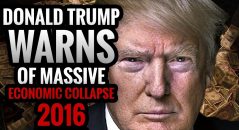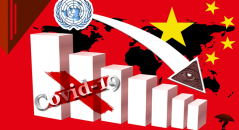Subscribe: Spotify | Email | TuneIn | RSS
Harley Schlanger, LaRouchePAC.com, IMPERIAL GEO-POLITICIANS ENGAGE IN FUTILE, BUT DANGEROUS EFFORTS TO BLOCK BRI, Belt and Road for All Nations, World Trade or World War, Defense of Earth, Future Tech and Solutions for Mankind as We Leap Off Earth to Moon Mars and Milky Way Worlds, collapsing London-directed Trans-Atlantic system,Dr Bill Deagle MD AAEM ACAM A4M, NutriMedical Report Show, www.NutriMedical.com, www.ClayandIRON.com, www.Deagle-Network.com,NutriMedical Report Show,
North Korean leader warns of return to tension; Trump thanks Putin
https://www.reuters.com/article/us-northkorea-russia-kcna/north-korean-leader-warns-of-a-return-to-tension-blames-u-s-bad-faith-idUSKCN1S12QH
https://harley.larouchepac.com/imperial_geo_politicians_engage_in_futile_but_dangerous_efforts_to_block_bri
IMPERIAL GEO-POLITICIANS ENGAGE IN FUTILE, BUT DANGEROUS EFFORTS TO BLOCK BRI
By Harley Schlanger
April 2019
As the second Belt and Road Forum opened in Beijing on April 25, the defenders of the collapsing London-directed Trans-Atlantic system have stepped up their rhetorical assault and financial/military activities against the New Paradigm, which is emerging around President Xi Jinping’s Belt and Road Initiative (BRI). While engaging in endless repetition of bogus charges, such as that of an “aggressive and escalating Chinese military threat”, “state-sponsored spying”, “imperial ambitions” and “currency manipulation”, these war party operatives display the same lack of regard for truth that characterized their use of discredited charges of “Russian hacking” and “Trump collusion” to target President Donald Trump’s outreach to Russia and President Putin. And just as their continuing assault against Trump and Putin has been revealed to be a regime change coup organized by top elements of the British Empire—including their operatives in the Obama intelligence community and their Bush League neocon allies—there is no evidence to back the claims they now are making against China’s President Xi Jinping and his BRI.
But these attack dogs are not concerned with truth, nor evidence. Instead, they wish to create a hostile environment against improved U.S.-Chinese relations, to prevent Trump from succeeding in bringing the U.S. into a coordinated relationship with the BRI, based on his often-expressed friendship with Xi. This friendship has provided a basis for productive U.S.-Chinese cooperation in addressing the North Korean nuclear threat, and has survived a rough patch of trade talks, in which the U.S. has imposed tariffs aimed at addressing the continued existence of a large trade deficit with China. The resolve of both leaders to succeed in these talks has resulted in progress, as a new round of trade negotiations begins April 30 in Beijing, with both sides saying they are nearing an agreement, which Trump has repeatedly tweeted will be “historic”.
For their part, the Chinese have continued to express a desire for the U.S. to be partners in the BRI process. On the eve of the event, China’s Ambassador to the U.S., Cui Tiankai, appealed to the U.S., to accept this challenge.
“Imagine the potential of China and the United States,” he said, “the world’s two largest, most vibrant economies, collaborating on the most ambitious development project in history. The scenario is no fantasy: China’s Belt and Road Initiative (BRI), which kicked off almost six years ago, will eventually connect a vast swath of the world, creating huge yields in economic activity, and wiring the world together as never before. However, the United States remains on the sidelines, and this has implications not only in terms of missed opportunities for growth in the U.S., but for the cause of global development which needs the ingenuity and the industry of the U.S.”
END OF GEOPOLITICS
The unwillingness of the anti-China mob in the U.S. to respond positively to this challenge has nothing to do with fears that the Chinese are about to establish a new global empire, to threaten U.S. hegemony. Instead, it is an explicit rejection of an earlier offer made in August 2018 by President Xi, in discussing the goal of the BRI.
“The Belt and Road,” he stated, “is an initiative for economic cooperation, instead of a geopolitical alliance or military league, and it is an open and inclusive process rather than an exclusive or ‘China club.'”
In language which directly echoes the Schiller Institute’s Helga Zepp LaRouche, who has defined the New Paradigm as one in which “geopolitics” has been eliminated, Xi is clear that he sees the threats against achieving peaceful cooperation as coming from the geopolitical doctrines developed at the end of the 19th century by British imperial strategist Halford Mackinder. A staunch defender of the British Empire, Mackinder argued that the greatest threat to continued British world domination would be the development of new trade routes over land, utilizing rail, which would diminish greatly the dominant position in world trade, based on British sea power.
Mackinder’s doctrine defined the emergence of rail connections, such as the Trans-Siberian railroad, or the Berlin-Baghdad line, as existential threats to the Empire. The precedent of Lincoln’s Transcontinental railroad in the U.S., connecting the east and west coasts of the U.S. by land, which was seen as a danger by Britain’s imperial predators, was viewed as a positive precedent by leaders in Europe. To prevent this, the British orchestrated regional wars—such as the Russo-Japanese war, and the 1912-13 Balkan Wars—and employed divide-and-rule tactics, to undermine the strategic cooperation between nations required to achieve peaceful commercial and cultural ties. The geopolitical intervention by the Empire was directly responsible for both World Wars of the twentieth century. Their heirs in today’s anti-Russia, anti-China policy gaggle are pushing a course leading toward a possible World War III, a horrific potential result, but one which does not at all deter them from provocative actions.
WILL RUSSIAGATE BECOME CHINAGATE?
What is not surprising is that many of those spouting nonsense about China are the same as those who previously—and still are—using Russiagate to control, or remove President Trump. A leading anti-Trump figure in the U.S. Senate, Republican Marco Rubio, is a point man against China, using his Committee on Small Business and Entrepreneurship to spread lies about China. This committee just released a report, “Made in China 2025 and the Future of American Industry”. In introducing the report, Rubio accuses China of “blatant industrial espionage and coercion”, adding that China intends to “steal and cheat their way to world dominance.” In an op ed he wrote on April 25, he accused the U.S. of being “stunningly naive” in pursuit of a trade partnership, a direct attack on Trump’s effort to negotiate with China. He branded the BRI as part of “an unprecedented effort to supplant America’s role as the leading economic and military power,” and warned nations not to fall into China’s “debt trap.” Note that Rubio led the Republican attack on Trump’s negotiations with Russia’s Putin at Helsinki, and has defended the FBI from charges of engaging in a coup against Trump: I have seen “no evidence” that the FBI spied on the Trump campaign, he said on multiple occasions.
Rubio’s effort has bipartisan support, with Democratic Party presidential candidate Elizabeth Warren chiming in that China “has weaponized its economy” in its effort to overtake the U.S. This line, which is heard from many Democrats with ties to Hillary Clinton, is coherent with the G.W. Bush era geopolitical dogma of the Project for the New American Century (PNAC), which held that, after the collapse of the Soviet Union, the U.S. must remain the unilateral power in the world. It is also reflected in the reconstitution of the Cold War Committee on the Present Danger (CPD), this time focusing on China rather than Russia. CPD-China, as it is known, held an event in Washington on April 9, featuring Sen. Ted Cruz, a former Trump opponent, Newt Gingrich, an occasional spokesman for Trump, and Steve Bannon, who worked for the Trump campaign and presidency as a “strategist”, but was later fired. Cruz said that China is “the greatest long term geopolitical risk that the U.S. faces”, while Gingrich accused the U.S. of “sleepwalking” while China asserts its new-found power. Bannon has a long history of anti-China posturing, claiming that we are in “an economic war with China”, one which “China foisted on us.”
The CPD-C was set up to “inform America about the existential threat” of China. While its personnel are mostly recycled neocons from the Bush era, such as Frank Gaffney, its vice-chair, more concerning is the chorus of voices from within the Trump administration attacking China. These include Vice President Pence, who has accused China of “economic aggression”, having an “unparalleled surveillance state”, and using “‘debt diplomacy’ to expand its influence”; and Secretary of State Pompeo, whose mid-April tour of four nations of Latin America included harsh rhetoric and threats against those wishing to collaborate with China. While in Chile, Pompeo claimed that China deploys its companies abroad to “enter the house, set traps, ignore the rules and propagate disorder.” Pence, Pompeo and special Venezuela envoy Eliot Abrams have taken the point in threatening both Russia and China over what they say are unwelcome intrusions into “our hemisphere”, with their support of the Maduro government in Venezuela, which the British faction has targeted for regime change.
Will such absurdly provocative allegations and threats stop China from succeeding with their “win-win” economic and strategic diplomacy? As Mrs. LaRouche has emphasized, China’s efforts are “unstoppable,” except by war, as they address needs in many nations, for infrastructure and development aid, which is not available elsewhere. This was evident in an April 20 article in “Foreign Policy” magazine, “Catching China by the Belt (and Road)”, which wrote about the newly-established U.S. government agency, the International Development Finance Corp. (IDFC), as a plan to counter the BRI. The IFDC was created, the authors posit, to prevent the developing world from falling “under China’s sway,” to “help Washington push back against Beijing’s sweeping BRI.”
However, they admit that the IFDC has offered a paltry $60 billion in capital, compared to the more than $1 trillion already pledged by China. Further, the aid comes with the requirement that the IMF and World Bank be involved in overseeing the fund disbursement. Saying this is necessary to prove that China is violating “well-established norms with its lending policies”, and to “draw attention to the corruption of the BRI”, it is well known that one of the reasons so many nations have welcomed the BRI is their rejection of IMF/World Bank conditionalities, which have prevented real development from occurring, while maintaining the colonial lending practices favorable to the financial institutions controlled by the British empire.
As Russiagate has crumbled, brought down by its blatant lies and increasingly transparent evidence that it was nothing but a coup, run by a foreign power—Britain—to overturn the result of the 2016 election, “Chinagate” will ultimately fail. The potential benefits of peaceful cooperation between the U.S. and China, recognized by both Presidents Trump and Xi, in light of the great success of the BRI, are a preferred outcome to trade war and military confrontation. The media may hide from the American people the dynamic story of China’s BRI, but, if the truth becomes known, it is likely that Americans would reject the McCarthyite scare mongers, as they have in the past, and embrace the possibilities in a “win-win” relationship with China.



